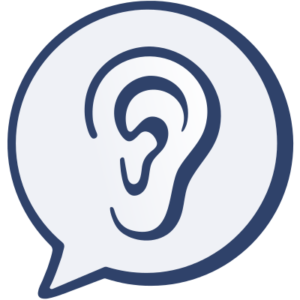Mild, Moderate, or Severe Hearing Loss: What’s the Difference?
After a hearing evaluation, many patients ask me “how bad is it?” We classify hearing loss as being either mild, moderate, severe, or profound.
 Frequently when I explain the hearing loss, the response I get back is “well that’s not too bad.” Even a mild hearing loss can have a profound impact on your ability to communicate effectively and on your brain function.
Frequently when I explain the hearing loss, the response I get back is “well that’s not too bad.” Even a mild hearing loss can have a profound impact on your ability to communicate effectively and on your brain function.
Perhaps if we compare nearsightedness with hearing loss, it might put things in better perspective. If you have a mild hearing loss and you compare it to being mildly nearsighted, you might say you need glasses to drive and if you are having trouble reading at a distance and to see the blackboard/television clearly.
If you are moderately hearing impaired and compare it to being moderately nearsighted, you would need glasses for almost everything. As a moderately nearsighted person, I cannot function normally without my glasses or contact lenses and I would never dream of getting behind the wheel of a car. So, if you compare the two, if you are moderately hearing impaired, you cannot function normally in any situation without hearing devices or assistive listening devices.
Severe and profound hearing loss are generally well understood. If you have a severe or profound hearing loss, you need help. You can’t hear anything without help.
I hope this helps to clear up some of the confusion around hearing loss.
If you would like more information or have questions, give us a call at 727-323-2471.
Susan E. Terry, Au.D., F-AAA, F-NAP
Doctor of Audiology
Board Certified
P.S. We are here to help if you have any questions about your hearing feel free to give us a call at 727-323-2471